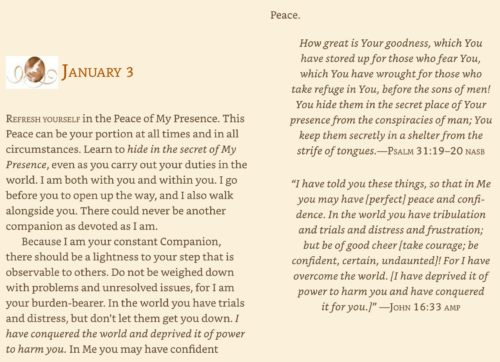The Gift of Prophecy in the Church
You must want love more than anything else; but still hope for the spiritual gifts as well, especially prophecy. —1 Corinthians 14:1, Jerusalem Bible
Richard considers the gift of prophecy in the church, and why so many of us fail to recognize this gift today:
It is interesting to me that Paul lists prophecy as the second most important of the gifts of the Spirit. Yet I think it’s safe to say that most of us grew up thinking that prophecy was something that existed in the past, but it had no contemporary significance or meaning. We really didn’t expect to meet any prophets; if we did, I’m sure we’d think they were eccentric or fanatic or strange. But Paul writes, “To some [Christ’s] gift was that they should be apostles; to some, prophets; to some, evangelists; to some, pastors and teachers; so that the saints together make a unity in the work of service, building up the Body of Christ” (Ephesians 4:11–12, Jerusalem Bible). In Corinthians, he specifically names it right after love, ahead of other gifts (see 1 Corinthians 14:1).
So here we have this phenomenon of something that’s supposedly central and yet most of us know nothing about it. Has something gone wrong or is Paul wrong? I picture a big jigsaw puzzle, but there’s a piece missing, and I think it’s the importance of the meaning of prophecy.
First of all, let’s assume it doesn’t mean anything we think a prophet represents: someone who foretells the future, or issues dire warnings. Let’s get rid of that. Also, traveling around the world, I’ve found many churches named Christ the King, but I’ve never found a church named Christ the Prophet. And hardly ever, except in the last few years, have I seen Christ the Prophet pictured in art. I think this reveals there’s just a great big non-understanding, non-appreciation, even non-expectation of Jesus in that role. We don’t expect it, and if we don’t expect it, if we don’t want it, if we aren’t looking for it, we sure aren’t going to get it.
When I think of seminaries for those of us who are supposed to be teachers and apostles in the church, we literally trained people to grow in the other gifts of the Spirit. We educated them, we affirmed them, certified them, ordained them. But in fact, if anyone would dare to think of himself or herself as a prophet, they probably wouldn’t even be welcome in the church. They’d probably be assumed to be dangerous or critical or negative or mistaken.
All I can presume is that there’s some kind of ideological bias here. Why is it that we can’t see this gift, or look for it, or expect it? I think those who establish religion, and those who build churches, have an inherent bias against the charism or gift of the prophet. The prophet is always a challenge to “business as usual.”

 Click Image for John White's Original Vision For CO2's
Click Image for John White's Original Vision For CO2's
